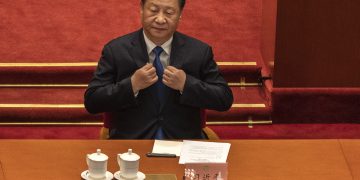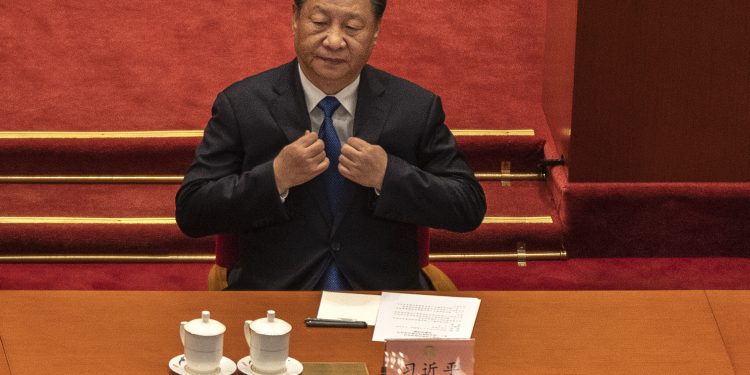Business leaders who paid thousands to dine with Chinese President Xi Jinping on Nov. 15 finalized lucrative deals with Beijing in the days following, The Wall Street Journal reported on Tuesday.
On the sidelines of the Asia-Pacific Economic Cooperation (APEC) conference in San Francisco in November, business executives had the opportunity to pay and attend a private dinner featuring Xi, and could pay up to $40,000 to dine at the Chinese president’s table. Some of the leaders who dined with Xi had been hoping to strengthen their business in Beijing and found their wishes granted in the days following, according to the WSJ.
One example is Hock Tan, CEO of American chip-making company Broadcom. Tan’s company had been seeking to acquire software developer VMware in a $69 billion merger deal announced in May 2022, but Chinese regulators prevented the acquisition for months, leading Broadcom to postpone its completion three separate times, according to the WSJ.
Tan had met with Chinese Foreign Minister Wang Yi in October to raise the issue and was not given a clear answer as to how the merger deal would proceed, according to the WSJ. But days after Tan paid $40,000 to meet and dine with Xi in November, Broadcom’s deal was approved by China.
Chinese regulators approved chipmaker Broadcom’s $69 billion acquisition of cloud computing firm VMware, with additional restrictive conditions, according to Reuters. The company intends to close the transaction on Wednesday after final clearance from China. pic.twitter.com/jtBwn0lsJ4
— Global Times (@globaltimesnews) November 22, 2023
Chair of Mastercard’s Board of Directors Merit Janow also dined with Xi, according to the WSJ. Mastercard for years had been seeking a deal with Beijing to issue branded cards, denominated in yuan currency, in China; the deal was approved days after Janow’s dinner with Xi in November.
Broadcom, Mastercard and Boeing were some of the biggest backers of the dinner featuring Xi, according to the WSJ. While the former companies made progress in strengthening their business in Beijing, Boeing failed to make any headway and hasn’t made a deal with China since 2017.
Many American companies have become increasingly hesitant to do business with Beijing; certain laws and information vital to these companies are unclear, and China has conducted a number of raids on due diligence and consulting firms within the country, even going as far as to prevent staff from leaving the country amid investigations.
“It is a carrots-and-sticks operating environment, and we appear to be in the carrots mode,” James Zimmerman, a consultant for companies doing business in China, told the WSJ. “China is an operating environment where every license, permit and approval is a process that can become highly politicized, and more so when U.S.-China relations go south.”
Mastercard and Broadcom did not immediately respond to a request for comment.
All content created by the Daily Caller News Foundation, an independent and nonpartisan newswire service, is available without charge to any legitimate news publisher that can provide a large audience. All republished articles must include our logo, our reporter’s byline and their DCNF affiliation. For any questions about our guidelines or partnering with us, please contact [email protected].
All content created by the Daily Caller News Foundation, an independent and nonpartisan newswire service, is available without charge to any legitimate news publisher that can provide a large audience. All republished articles must include our logo, our reporter’s byline and their DCNF affiliation. For any questions about our guidelines or partnering with us, please contact [email protected].



























 Continue with Google
Continue with Google